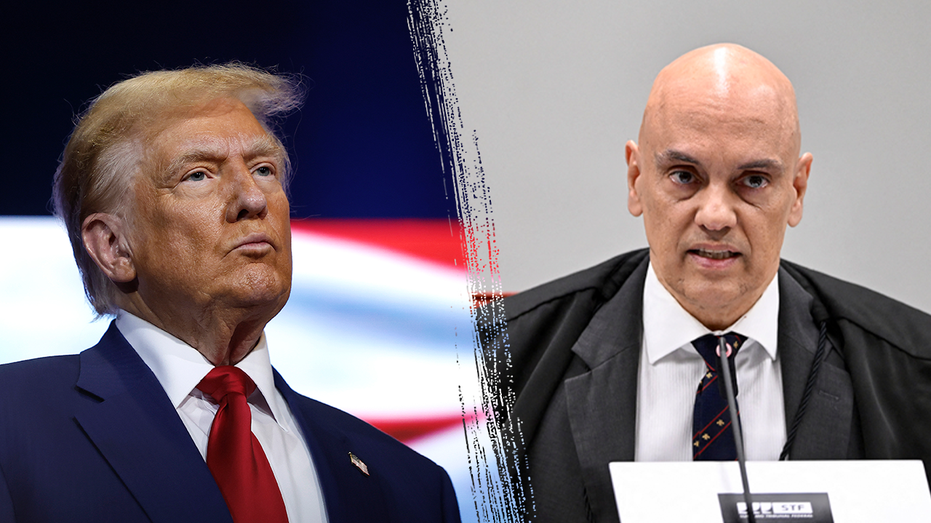Trump DOJ Issues 'Unprecedented' Warning to Foreign Judge in Free Speech Case Involving Rumble
Rumble faces international free speech clash as Brazil’s Supreme Court and U.S. Department of Justice become entangled in a high-stakes legal fight.

The United States Department of Justice (DOJ) recently took the unusual step of formally rebuking a Brazilian Supreme Court justice, sending a strong message regarding international legal boundaries and the protection of free speech within U.S. territory. The letter, sent in May, demanded that Justice Alexandre de Moraes cease attempts to compel the American-based video platform Rumble to restrict the speech of users residing in the United States, emphasizing that such orders amount to international overreach and have no enforceability under U.S. law.
This conflict underscores the broader challenges facing online platforms as they navigate conflicting legal demands from foreign governments. Rumble, positioned as an alternative video-sharing site resistant to content censorship, has become a focal point for debates on freedom of expression, particularly after facing restrictions not just in Brazil, but also in countries like China, Russia, and France. The pressure mounted when Justice de Moraes ordered Rumble’s suspension in Brazil, citing the company's refusal to comply with demands to remove accounts belonging to a Brazilian national living in the United States—an individual sought by Brazilian authorities on accusations of spreading false information and considered a fugitive in his home country.
Rumble’s CEO, Chris Pavlovski, has characterized the DOJ’s intervention as unprecedented, interpreting it as a clear assertion of American sovereignty and a decisive stance against foreign attempts to curtail First Amendment protections. “The letter from the U.S. Department of Justice to a foreign judge over censorship orders is unprecedented,” he stated, adding that such foreign efforts to bypass U.S. law and suppress speech are “incompatible with American sovereignty.” Pavlovski asserted that the company’s resistance serves not only American users but is a stand for free societies globally.
The DOJ’s letter, dated May 7 and released to the public on Thursday, directly informed Justice Moraes that his judicial directives hold no power on American soil. The correspondence explained, “These purported directives to Rumble are made under threat of monetary and other penalties... To the extent that these documents direct Rumble to undertake specific actions in the United States, we respectfully advise that such directives are not enforceable judicial orders in the United States.” The letter further suggested that Brazil’s judiciary follow established international legal protocols when seeking to enforce such orders abroad.
The U.S. government’s response has gone beyond correspondence. In a congressional hearing last month, Senator Marco Rubio revealed that the State Department is considering imposing sanctions against Justice Moraes under the Global Magnitsky Human Rights Accountability Act, which targets foreign officials implicated in human rights abuses or significant corruption. “It’s a great, great possibility that will happen,” Rubio said, underlining the seriousness with which U.S. authorities are treating the matter.
The issue has ignited broader political discourse in both countries. Representative Cory Mills voiced concerns over what he described as a wave of censorship and political repression by Brazilian authorities, stating that such crackdowns have begun to affect individuals on American soil. In response, Rubio announced a new visa restriction policy targeting foreign officials involved in censoring U.S. citizens, declaring, “Free speech is essential to the American way of life—a birthright over which foreign governments have no authority.”
Brazil’s leadership, however, has reacted sharply to the American posture. President Luiz Inacio Lula da Silva criticized the possibility of U.S. sanctions, declaring it “unacceptable” for any country’s leader to intervene in another nation’s judicial decisions, and called for the U.S. to respect the integrity of Brazilian institutions.
The dispute continues against the backdrop of rising scrutiny of Brazil’s judiciary. Justice Moraes, already a controversial figure domestically for his tough stance against misinformation and alleged threats to democracy, now stands at the center of an international standoff over digital rights and state sovereignty. As Rumble remains disabled in several foreign markets and global debates over platform accountability intensify, the outcome of this case could set significant precedents for how online speech is regulated—and protected—across borders.




